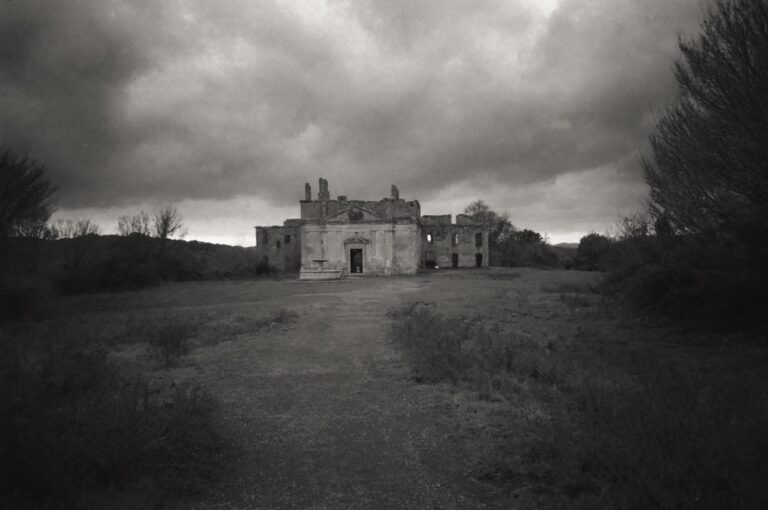Christians have a complicated relationship with fear.
The rhetoric is that Christians are not meant to let fear into their lives because we know the end of the story. The issue is that no matter how hard we try, we can’t eliminate fear from our lives. We’ve seen how this rhetoric of fear leads to guilt and shame surrounding fear and anxiety. If suppression of fear doesn’t work, then we have to find another way to handle it because ignoring it won’t make it go away.
If horror movies’ ultimate goal is to cause fear, maybe they should be avoided. Some horror might just have more to offer us than that.
A recent study through the National Library of Medicine showed that those who watched horror movies tended to have lower anxiety and fear levels in their everyday life and more emotional resilience overall. The study shows that “frightening fictions allow audiences to practice effective coping strategies that can be beneficial in real-world situations.”
So, horror might positively impact how we allow fear into our everyday lives. First, we have to transcend the taboo of fear.
This is not a claim that all Christians should like horror movies. Christian or not, horror is not everyone’s genre, nor should it be. Just like in any media, discernment is essential. This is simply a request to reconsider the overarching ban on the genre. If we can see past our resistance to fear, horror could have something to teach us.
First, we have to clarify that not all horror movies are the same. It is easy to make a terrible horror movie. And even well-made horror movies are sometimes fear for fear’s sake. Well-made or not, these are not the kinds of movies I am addressing. I am talking about horror media that use fear as a vehicle for a valuable theme or experience.
Demonic themes in horror are a significant sticking point for Christians and horror media. Again, individual discernment is essential, as with all complex subjects. The issue is that these issues are in our scripture, and they are in our world. So, there is potential for them to be handled well.
Scott Derrickson, writer and director of “The Exorcism of Emily Rose” and “Deliver Us from Evil” utilizes these themes. Derrickson is a born-again Christian, and he is loud about it.
“For me, [horror] is the perfect genre for a person of faith to work in,” Derrickson told Catholic movie reviewer Steven D. Greydanus. “You can think about good and evil pretty openly.” Derrickson refers to horror as “the genre of non-denial” and “confronting evil – confronting what’s frightening in the world.”
Derrickson, too, recognizes the danger of the genre. “When it’s reduced to mere scariness — or even worse, mere exploitation … I don’t think it’s necessarily a good or healthy thing, emotionally, mentally, spiritually.” As a Christian filmmaker, he is uninterested in fear as the ultimate goal of horror. “Horror, for me at least, invites depth, moral passion, and ideas that are to be taken seriously.” With Derrickson’s mindset, horror can serve as a tool to better address difficult themes.
Dr. Betty Millar, a philosopher and researcher of cognitive science, studied the genre’s strength in communicating themes of death and grief. Millar writes that horror films “use an unexpected monster as an effective way to represent the experience of grief; there is a parallel between the disruptive experience of grief for the bereaved and the disruptive effect of a monster’s entry into the protagonist’s life.”
More modern films like “The Babadook,” “Hereditary,” “The Witch” and even shows like “The Haunting of Hill House” demonstrate grief in a way unique to the horror genre. They use the power and extremity of horror to handle the unthinkable. By observing the unthinkable through fictional situations and finding connection with characters who experience the unthinkable, we acknowledge our own fears of the unthinkable. By acknowledging them, it is easier to overcome them.
Writer and Director Mike Flanagan describes horror as “metaphorical exploration” and a “safe place that we, as a culture, can deal with things that upset and frighten us – the darker side of our nature.” Flanagan, too, sees horror as a tool to enhance the meaning of a story, not the ultimate goal. “When horror is about something – capital-A about -that’s when it’s really landing.”
Flanagan is the reason that I no longer despise horror. I am a wimp. If you had told me two years ago that I’d be defending horror movies, I would not have laughed. I would have been afraid. That is until the most beautiful story of forgiveness I have ever experienced came through horror.
Mike Flanagan’s “Midnight Mas” uses fear to help process unthinkable things like death, grief, guilt, and forgiveness when forgiveness should be impossible. Flanagan uses horror to show self-sacrifice amidst the unthinkable. “It isn’t about us anymore. It’s about everyone else in the world. Dying for people, we haven’t even met. No greater love than that.”
The fear and despair these characters transcend makes their self-sacrifice for the greater good even more beautiful. If this sounds familiar, that’s because the gospel does the same thing. Resurrection cannot be good without first grappling with death.
Horror – horror that is “capital A about something” – might allow us to better process the fear we ignore. It also might make the reasons we have not to fear that much sweeter.




